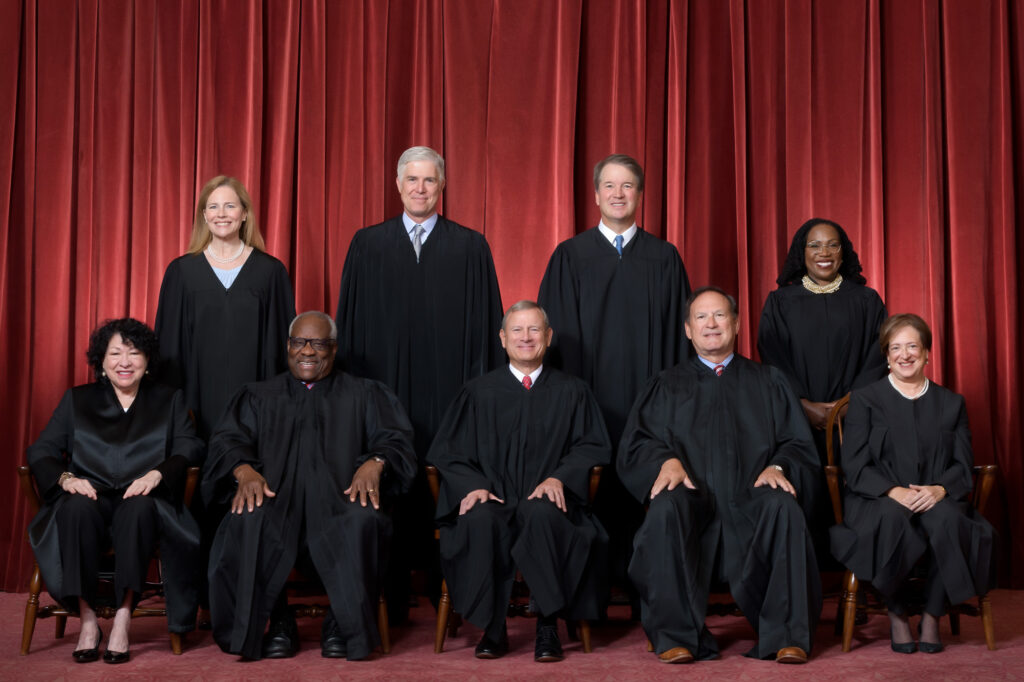|
Getting your Trinity Audio player ready...
|
The U.S. Supreme Court has given the green light to the Trump administration to continue deporting migrants to third countries without notice. This controversial move allows individuals to be expelled without the chance to claim asylum or be properly notified, raising serious concerns about due process, human rights, and the integrity of the U.S. immigration system.
At the center of this issue are a number of countries the administration has made arrangements with or is currently targeting, including El Salvador, Panama, Costa Rica, Libya, Rwanda, Benin, Eswatini, Moldova, Mongolia, and Kosovo. In some cases, migrants are being sent to nations with which they have no ties and where the risk of mistreatment is high.
One of the most alarming examples is El Salvador, where deportees are being sent directly to the infamous CECOT mega-prison. This facility has been widely criticized for its inhumane conditions, overcrowding, and indefinite detentions. In a recent incident, more than 130 Venezuelan migrants were deported there, some with no criminal records. These individuals now face possible abuse, lack of access to legal representation, and indefinite imprisonment with no clear path out.
The Trump administration’s policy paints all deportees with the same brush, often labeling them criminals without providing real evidence or a court hearing. This creates the very real possibility that innocent people could be sent to third world prison systems where they could get lost forever. There is little to no accountability, and once someone is removed, their legal options are nearly impossible to pursue.
The Supreme Court’s decision to lift an earlier injunction allows this policy to move forward while legal challenges continue in lower courts. The dissenting justices, including Sonia Sotomayor and Ketanji Brown Jackson, made clear that this practice strips individuals of their constitutional protections. Deporting people without notice or a fair process goes against everything the Fifth Amendment is supposed to stand for.
Critics are calling the decision immoral, unethical, and un-American. Human rights organizations warn that these policies will lead to families being separated, innocent lives destroyed, and people effectively erased from any legal system. This is not just a matter of law; it is a humanitarian crisis in the making.
By continuing to deport people to countries where they face poor prison conditions, torture, or worse, the United States risks violating international law and losing its moral standing. Deporting someone without ensuring their safety or their right to due process is not justice, it is state-sponsored abandonment.
What happens next remains to be seen, but the damage may already be underway. For the migrants already placed on planes and sent to countries they’ve never known, the journey to justice may never begin. And for America, this may be yet another step toward turning immigration into a punishment rather than a promise.
Kou Siprèm Etazini bay Administrasyon Trump pèmisyon pou depòte imigran san avètisman nan lòt peyi
Kou Siprèm Etazini fèk bay administrasyon Trump dwa pou kontinye depòte imigran nan lòt peyi san yo pa resevwa okenn avètisman. Desizyon sa a ki fè anpil pale, pèmèt otorite yo voye moun kite peyi a san yo pa bay yo opòtinite pou mande azil oswa defann tèt yo legalman, sa ki leve gwo kesyon sou respè dwa moun ak jistis.
Pami peyi administrasyon an ap voye moun sa yo, gen El Salvador, Panama, Costa Rica, Libi, Rwanda, Benen, Eswatini, Moldavi, Mongoli, ak Kosovo. Gen ka kote imigran yo ap voye ale nan peyi yo pa janm mete pye ladann, kote yo pa gen okenn fanmi, epi kote kondisyon prizon yo vyole tout prensip limanite.
Yon egzanp ki pi grav, se El Salvador, kote imigran yo ap voye ale dirèkteman nan gwo prizon CECOT la. Prizon sa a deja resevwa anpil kritik pou vyolans li, twòp moun ladann, move tretman, epi detansyon san jijman. Pa lontan, plis pase 130 imigran venezyelyen te depòte nan prizon sa a, malgre anpil ladan yo pa te gen okenn dosye kriminèl. Moun sa yo kounye a ap viv anba presyon, san avoka, epi san yo pa konnen si y ap janm jwenn libète.
Administrasyon Trump lan trete tout moun menm jan, li mete etikèt “kriminèl” sou yo san li pa bay prèv oswa yon jijman. Sa kreye yon gwo danje kote moun ki pa fè anyen mal ka voye ale nan prizon peyi etranje, kote yo ka pèdi nèt nan sistèm lan. Pa gen okenn garanti yo ka defann tèt yo, epi dèske yo pa nan peyi Etazini ankò, li vin prèske enposib pou fè apèl legal.
Desizyon Kou Siprèm nan mete fen nan yon entèdiksyon ki te an plas pandan lòt tribinal yo t ap egzaminen kesyon an. Jij Sonia Sotomayor ak Ketanji Brown Jackson mete aksan sou jan politik sa a kraze tout prensip Konstitisyon Etazini. Depòte moun san ou pa avèti yo oswa san yo pa pase devan yon tribinal se pa jistis, se mechanste.
Gen anpil kritik ki rele politik sa a imoral, mechan, epi kont tout valè Etazini. Òganizasyon dwa moun di si Etazini kontinye aji konsa, y ap lage fanmi yo, detwi lavi moun inosan, epi voye yo nan sistèm prizon kote yo ka disparèt nèt. Se pa yon kesyon lwa sèlman, se yon kriz imanitè.
Lè w voye moun nan peyi kote prizon yo se lanfè, kote yo ka sibi vyolans oswa mò san jijman, Etazini mete tèt li an danje pou vyole lwa entènasyonal. Epi pi grav toujou, li ap pèdi repitasyon li kòm yon peyi ki bay moun espwa.
Sa ki pral pase apre, nou poko konnen. Men sa ki sèten, gen deja anpil viktim. Pou moun ki gentan sou avyon ale nan peyi etranje, batay pou jistis yo ka pa janm kòmanse. E pou Amerik la, sa se yon lòt pa ki mete imigrasyon pa tankou yon opòtinite, men kòm yon pinisyon.

